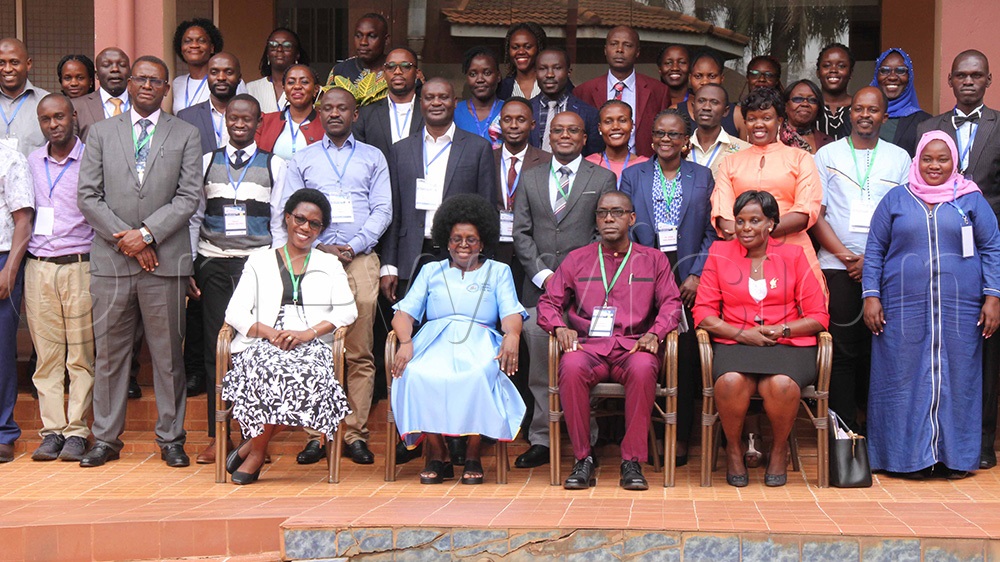Minister Musenero challenges PhD scientists on innovation
She said PhD students doing science courses are supposed to innovate in areas like pharmacy and medicine, which will boost the development of the country.
Minister of Science, Technology, and Innovation, Dr. Monica Musenero speaking at the 24th annual scientific conference. (Photo by Jovita Mirembe)
__________________
The Minister of Science, Technology, and Innovation, Dr. Monica Musenero, has challenged science graduates pursuing doctorates (PhDs) to concentrate on innovation.
She said PhD students doing science courses are supposed to innovate in areas like pharmacy and medicine, which will boost the development of the country.
‘‘Uganda spends about sh600m annually on importing drugs such as antibiotics, antimalarials, pain killers, and insulin, as well as medical supplies like diagnostic kits, reagents, and packaging materials, yet every year. Many graduate with science PhDs every year. Why can’t these students innovate drugs or kits, and we stop importing them?” she wondered.
Some of the sciencentist that atteneded the conference pose for a photo with the Minister of Science, Technology, and Innovation, Dr. Monica Musenero. (Photo By Jovita Mirembe)
Musenero noted that most students leave their research on the shelves.
According to her, locally produced products ranging from pharmaceuticals to medical services could significantly boost Uganda’s economy through job creation and productivity.
“We need to be self-reliant through innovations done by our PhD holders, because once we are economically developed, we are able to address the needs of our nation,” she said while officiating at the 24th annual scientific conference held at Silver Springs Hotel over the weekend.
Prof. Dr. Robert Kalyesubula, the chairperson of the Uganda Society of Health Sciences, called for the adoption of digital tools, saying it is the surest way of improving Uganda’s health care system.
‘‘We should have tools that can be able to transmit information digitally from one place to another without physically going there. Using available digital spaces can help us send messages through SMS, emails, and photos of a patient that needs a diagnosis, and it is done immediately without medical personnel seeing the patient physically,” Kalyesubula said.
Dr. Susan Nabadda, the Commissioner for Laboratory Services in the Health Ministry, stressed the need to strengthen laboratory services by health personnel in order to get accurate diagnoses and effective treatment for their patients.